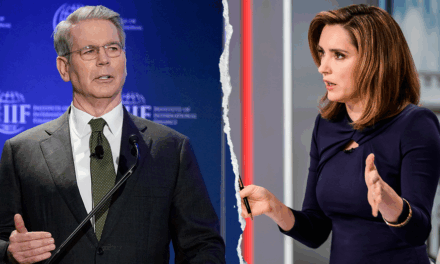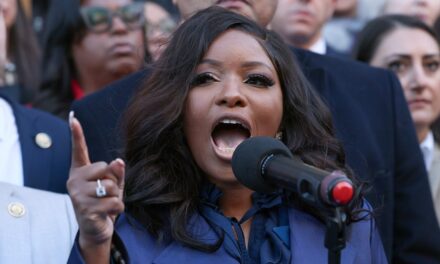In a surprising turn of events, Ms. Rachel, a beloved figure in the realm of children’s entertainment on YouTube, has found herself at the center of a heated discussion surrounding her recent social media posts related to the ongoing conflict in Gaza. Known for her engaging educational content aimed at toddlers, Ms. Rachel has garnered a large following, and her foray into more politically charged conversations has sparked significant interest and debate.
Ms. Rachel, whose real name is Rachel Griffin Accurso, has built her reputation on creating entertaining and educational videos that resonate with young audiences and their families. With a unique blend of music, play, and learning, she has become a staple in many households, offering parents a safe and enriching resource for their children. However, her platform now faces scrutiny as she wades into the complex and often volatile realm of international politics.
The controversy began when Ms. Rachel made a series of posts on social media addressing the humanitarian crisis in Gaza. Her comments, which she intended to promote compassion and empathy for those affected, were met with mixed reactions. Some applauded her for using her platform to raise awareness about critical issues, while others criticized her for appearing to wade into a highly contentious political debate, especially given her position as a children’s entertainer.
One of the individuals responding to Ms. Rachel’s posts was a controversial journalist, well-known for their critical views on Israel and its policies regarding Gaza. This reporter, who has frequently expressed strong opinions on the Israeli-Palestinian conflict, reached out to Ms. Rachel for an interview to discuss her perspectives and the reactions her posts had garnered.
Engaging in thoughtful dialogue, Ms. Rachel expressed her intentions behind the posts, emphasizing her commitment to fostering understanding and kindness among her audience. “My goal is to teach kids about empathy and care for others, regardless of their background,” she stated. “When I see suffering, I want to raise awareness in a way that encourages families to talk about these issues with their children.” Her approach is rooted in her mission to connect with young viewers on a fundamental level, promoting a message of love and compassion.
During the interview, the journalist prompted Ms. Rachel about the backlash she faced from various segments of her audience. “Some parents questioned whether a children’s entertainer should engage in political discourse,” the journalist remarked. This sentiment reflected a broader apprehension regarding the role of influencers in sensitive conversations that exceed the typical bounds of children’s programming.
Responding to this concern, Ms. Rachel reiterated her belief that, while her primary focus is on creating educational content for children, she feels a responsibility to address societal issues whenever possible. “As a public figure, especially one who engages with families and kids, I believe it is important to model caring and thoughtful engagement with the world around us,” she explained. She acknowledged that discussing complex geopolitical issues is difficult, but she argued that promoting empathy should not be regarded as a deviation from her core mission.
Critics, however, have challenged this view. Some commentators argue that Ms. Rachel’s involvement in political dialogues risks alienating parts of her audience, particularly those who may not align with her political views. The potential fallout from political engagement can be swift and unforgiving, especially in today’s polarized climate where any expressed opinion can result in boycotts or backlash.
The discussion between Ms. Rachel and the journalist did not shy away from the complexities of the situation in Gaza. The journalist highlighted the suffering experienced by civilians caught in the conflict, noting how the humanitarian crisis has drawn widespread condemnation globally. “It is crucial for creators like you to speak out,” the journalist stated, emphasizing the power of influential figures to inspire change and awareness.
Ms. Rachel agreed on the importance of inspiring awareness but also expressed concern for the potential misinterpretation of her intentions. “I want to ignite conversations,” she said, “but I also need to be careful about how my messages are received. I worry that they may be mischaracterized.” This reflects an ongoing struggle faced by many public figures attempting to navigate their responsibilities in the social media age, where content can easily be taken out of context.
The dialogue between Ms. Rachel and the journalist not only reflected the complexities of addressing serious issues while maintaining a family-friendly image but also underscored the broader societal conversations taking place regarding the role of entertainers and influencers in political discourse. While Ms. Rachel has always embraced the educational aspect of her work, this experience highlights the various tensions that can arise when personal beliefs intersect with public personas, particularly in sensitive contexts.
Amidst the backlash, many supporters have rallied around Ms. Rachel, emphasizing the necessity of compassion in times of conflict. They argue that using her platform to bring awareness to humanitarian issues is a commendable pursuit that can encourage families to engage in important discussions about empathy and social responsibility. Supporters have taken to social media to share positive messages in response to her posts, emphasizing her impact on promoting universal values of understanding and care.
Furthermore, Ms. Rachel’s situation has reignited conversations about the responsibility of influencers in today’s digital age. As social media platforms become instruments for advocacy and awareness, individuals who hold significant influence over young audiences must navigate a fine line between advocating for important issues and catering to the expectations of their followers.
Ultimately, Ms. Rachel’s interaction with the anti-Israel reporter underscores the ongoing dialogue regarding the responsibilities and challenges faced by influencers. While her motivations stem from a desire to promote kindness and understanding, the backlash reveals the complexities inherent in the intersection of children’s programming and political discourse.
As the debate evolves, Ms. Rachel remains focused on her mission to educate and provide a safe space for children and families. Whether or not this engagement in political discourse affects her brand and audience remains to be seen. However, it serves as a case study in the delicate balance required for influential figures navigating contemporary issues within their roles.
A path filled with challenges and rewards, Ms. Rachel’s endeavor to speak authentically about the world around her illustrates both the depth of her commitment to compassion and the realities of public perception. In her pursuit of fostering understanding and generosity, she positions herself at the intersection of culture and humanity, where the content we consume shapes our perspectives and priorities.
As conversations about Gaza continue, the impact of Ms. Rachel’s voice will undoubtedly resonate with her audience, influencing how families approach discussions about empathy, global awareness, and social responsibilities. This moment represents not just a pivot in her journey as an entertainer but also an essential reminder of the broader role influencers play in shaping societal narratives.
Ms. Rachel’s journey as a children’s entertainer who transcends the boundaries of mere entertainment reflects an evolving landscape of content creation and audience engagement. Through her efforts, she is not only educating young minds but also encouraging her followers to approach the world with kindness, curiosity, and a renewed focus on understanding the complexities of global affairs. As the dialogue continues, many will be watching to see how this narrative unfolds and impacts the broader discourse around children’s media and its responsibilities in today’s rapidly changing world.
































